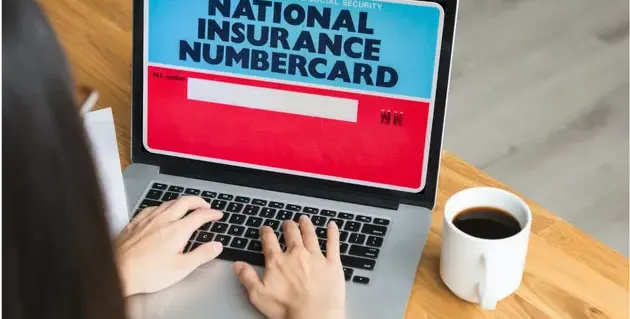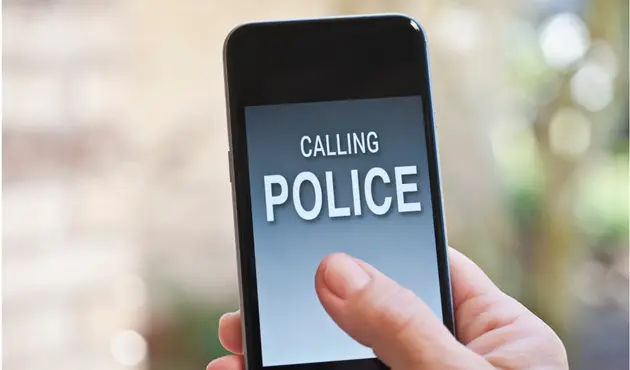
DWP warns over National Insurance scam
The Department for Work and Pensions (DWP) has issued via Twitter a new phone scam warning concerning National Insurance (NI) numbers. Tens of thousands of people have been scammed in the past year, resulting in reports to Action Fraud, the UK’s national reporting centre for fraud and cybercrime.
This scam typically involves someone pretending to be from the government in order to get your personal information or money. The best way to avoid this type of scam is to be aware of how it works and what to look for.
What is a National Insurance number
Before their 16th birthday, everyone in the United Kingdom is given a National Insurance number if their parents or guardians are receiving Child Benefit for your care. This number allows you to be found on UK and Scottish Government databases like HM Revenue & Customs (HMRC), the Department of Work and Pensions (DWP), and Social Security Scotland.

How National Insurance Number scam looks like?
According to recent reports, there has been a rise in the number of people being targeted by scammers in the UK who are pretending to be from the National Insurance office. The scam usually involves the caller asking for personal information such as date of birth or national insurance number, and then using this to commit fraud. In some cases, the caller may also try to get money from the victim by asking for payments to be made into a ‘safe account’.
Some time ago, there was a scam in the UK involving people's National Insurance numbers. The victims reporting they have received an automated phone call telling them that their National Insurance number has been compromised.
The automated message stated: "This call is in regards to your National Insurance number. Ignoring this final warning may lead you to legal troubles. The reason behind this phone call is to inform you that your National Insurance number will be terminated due to some unethical financial transactions."
Then they were then instructed to press a 1 button on their handset to be connected to the caller. Once they were connected, the fraudster pressured them into giving personal details to get the new National Insurance number. This enabled the criminals to commit fraud using the victim's credentials and information.
Be careful also if you receive automated message or automated telephone call - it is usually a scam. DWP never use automated calls for contacting customers. If you have been defrauded in this way report it to Action Fraud.
Phishing emails with National Insurance scams
In 2021 lots of people received a phishing email with the information that their NIN has been a target of identity theft and they are now required to reactivate their NIN by clicking on the link. This is a very common technique used by fraudsters to arouse your fear.
Remember that such emails are easy to check - they are usually grammatically incorrect and their domain is not gov.uk - like most government websites. Check the addressee of the messages, they are usually sent from strange and random email accounts. Visually and graphically, such emails look professional, have a logo and all the necessary information. If you do not check such an email and click on the link, it can end badly for you.
Remember, you will never be required to "reactivate" your National Insurance number. You can forward phishing emails to [email protected].
The DWP says that it will never contact people out of the blue to ask for personal or financial information, and so anyone who receives such a contact should report it immediately.
How can you protect yourself from the National Insurance scams?
Here are some tips on how to protect yourself from the National Insurance scam:
Never give out your personal or financial details to someone you don't know, especially over the phone or online.
If you receive a call from someone claiming to be from the government, hang up and call the government agency they claim to represent directly. You should you telephone numbers that you find on the official websites.
Be suspicious of anyone who asks for money upfront, especially if they claim it's for taxes or fees. Remain vigilant and hang up the phone immediately.
Never click on links or open attachments from someone you don't know, as they could contain malware that can steal your private information. These links usually lead to fake websites, whose main aim is to steal personal details from you.
Even if you're asked for personal information like your email address, date of birth, or mother's maiden name, criminals may misuse the information to commit fraud. If you don't trust the person on the other end of the line with your National Insurance number, you should avoid giving it over.
If you were scammed report it to Action Fraund

If you have received a weird phone call or text message from someone claiming to be from the Department for Work and Pensions (DWP), telling you that your National Insurance number has been suspended, this is a scam.
The DWP will never contact you out of the blue to tell you about a problem with your National Insurance number or ask you to confirm your personal details. If someone calls or texts claiming to be from the DWP, asking for your personal information, hang up.
If you have provided personal details or bank details to someone over the phone and you now believe this to be a scam, report it to Action Fraud at www.actionfraud.police.uk or by calling 0300 123 2040. If you have made any payment contact your bank or credit card company immediately.
Action Fraud is the UK's national reporting centre for fraud and cybercrime where you should report suspicious calls, emails, texts or social media messages claiming to be from the DWP. You can also find more information about how to protect yourself from scams on the GOV.UK website.
Scammers are constantly coming up with new ways to trick people so it's important to stay alert and always question unsolicited requests for your personal or financial information. By being aware of the latest scams and knowing what to look out for, you can protect yourself and your family from becoming victims.
This is a serious issue, and it’s important that people are aware of the dangers of giving out personal information to someone they don’t know. So please share this article with your friends and family to help raise awareness of this scam. Inform them that this type of danger exists. Together we can stop these criminals in their tracks!